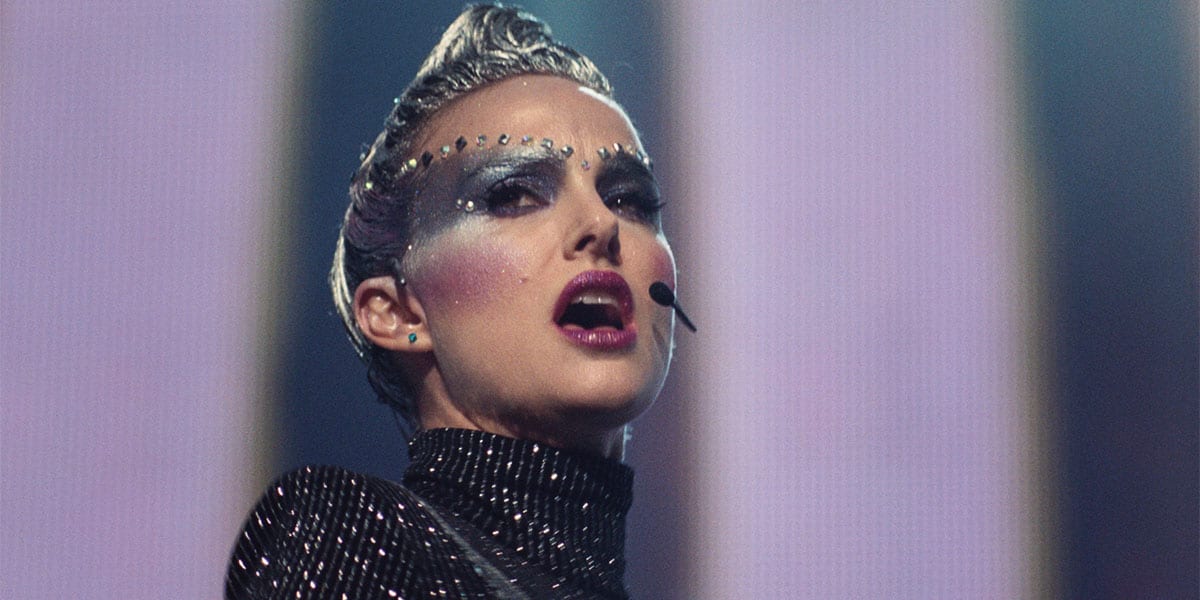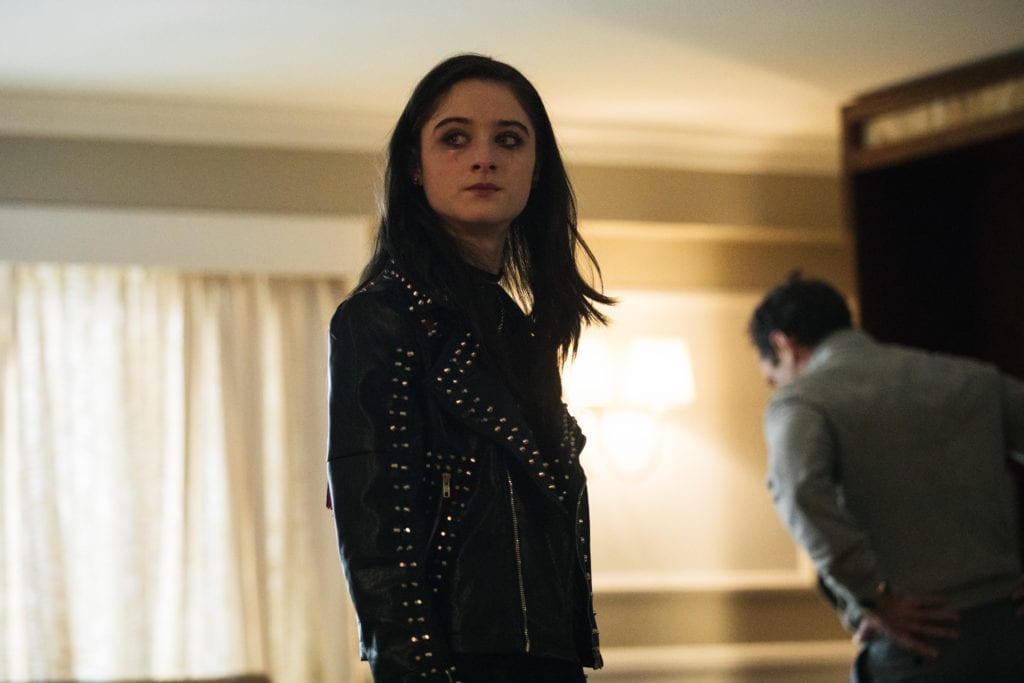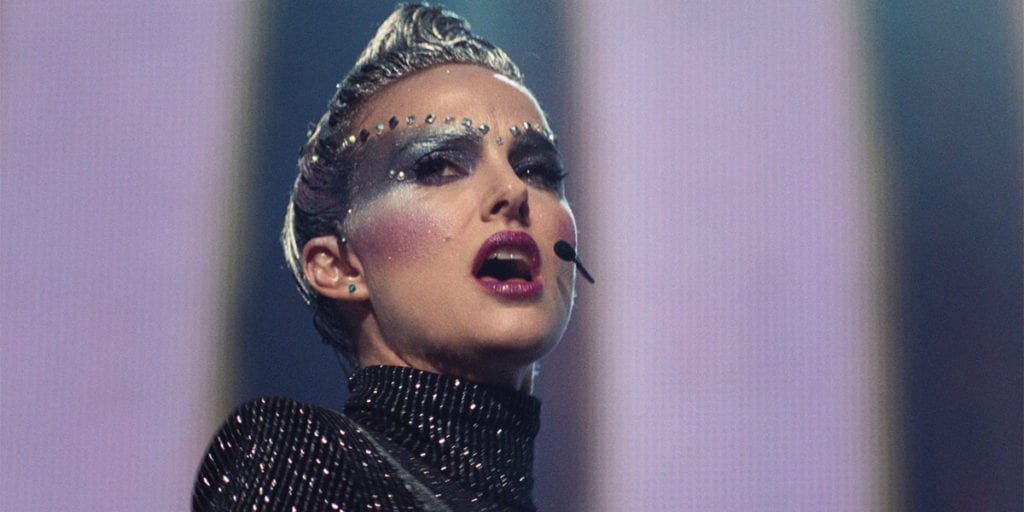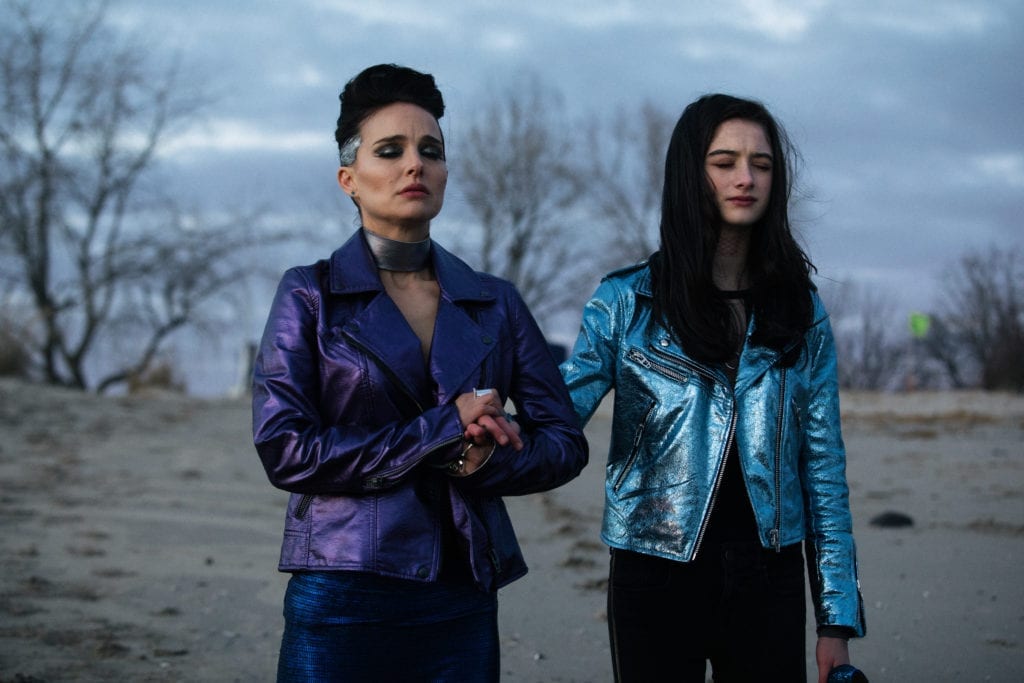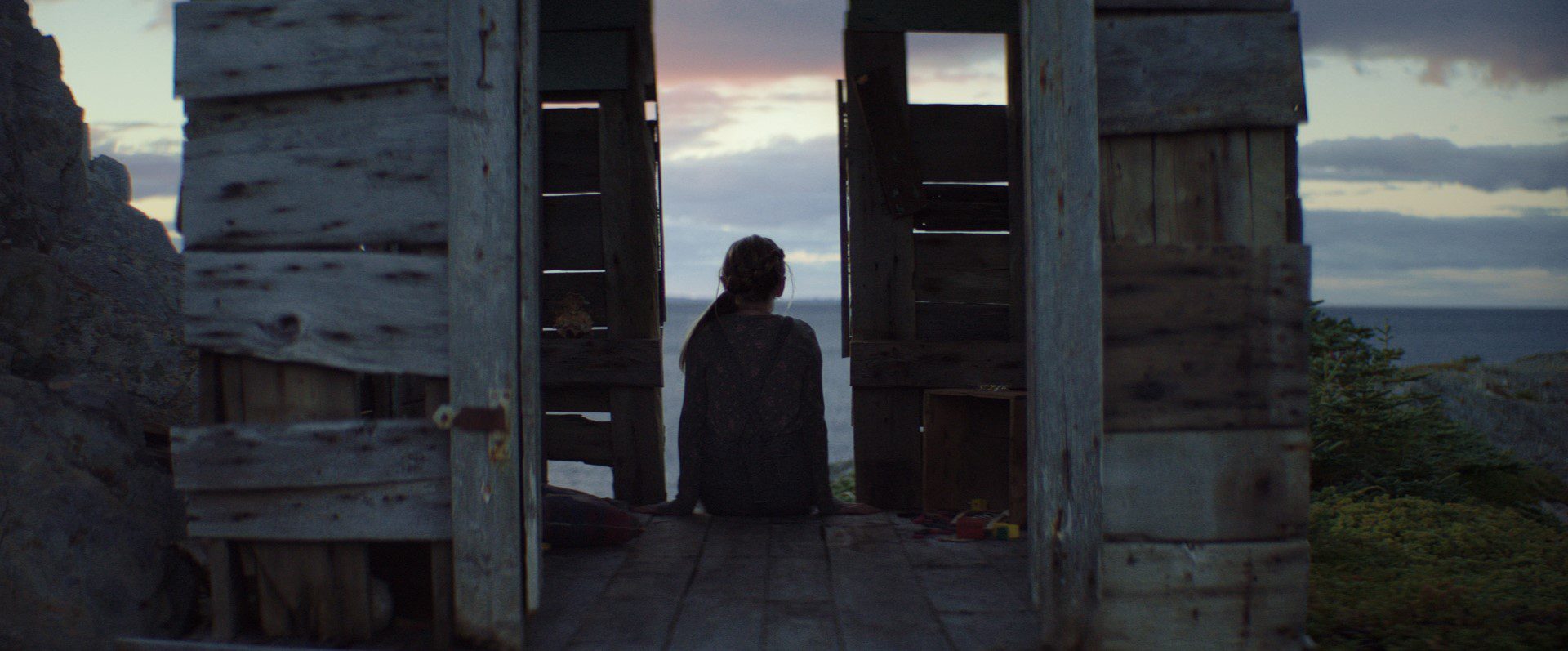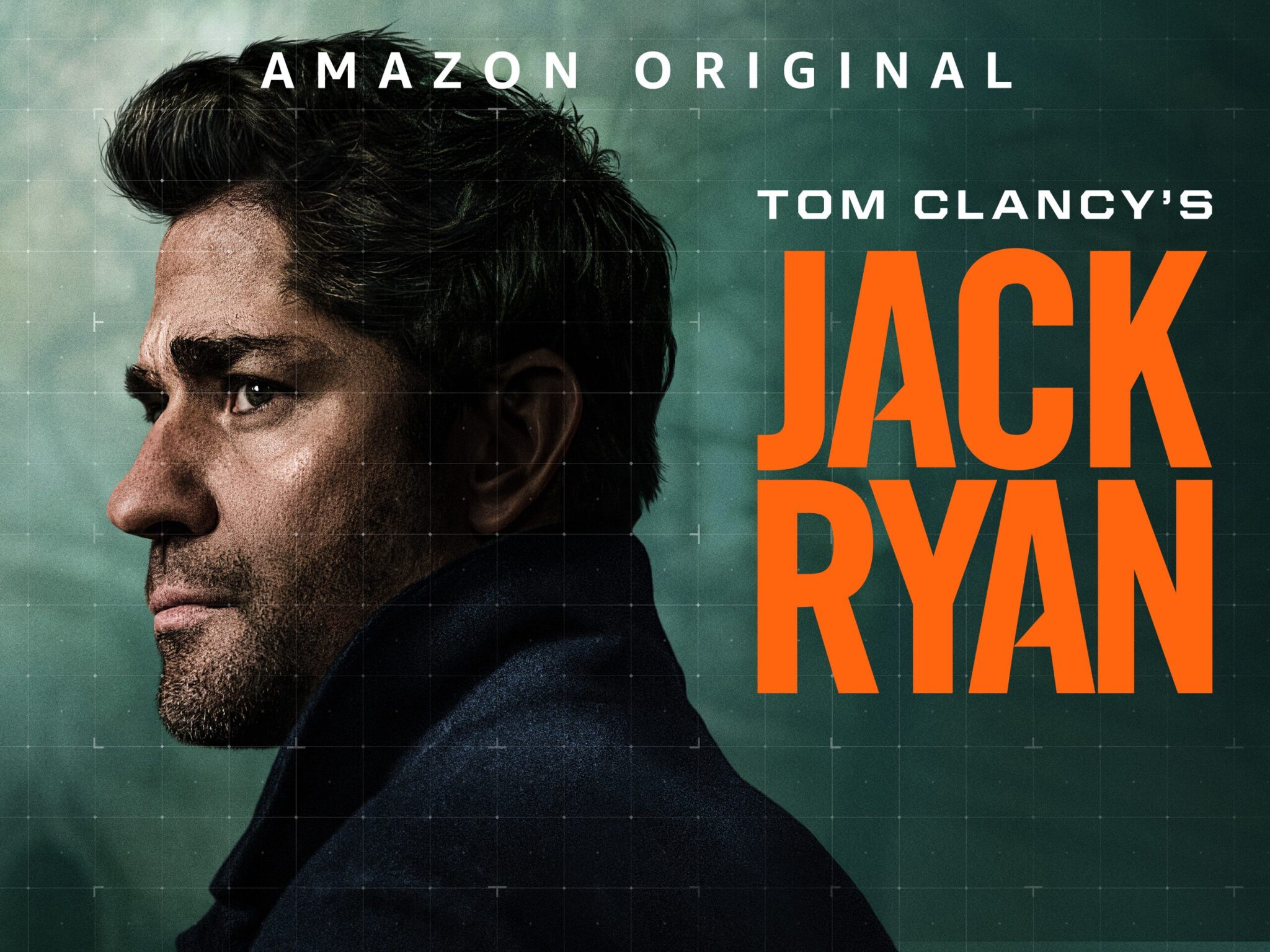Vox Lux is a story of the loss of innocence. It is also a reflection on the possibility of losing one?s foundational values along with that innocence. While we see this play out in the life of a girl and the woman she becomes, it may also give us pause to think about society and nations and what we all may be becoming.
The story is told in two acts. The first begins in 1999 at a school on Long Island. A student comes into the classroom where Celeste (Raffey Cassidy) is studying. The other student has a gun and when it is all over, Celeste is the only survivor in the classroom, but with a bullet lodged by her spine. When she performs a song at the wake for those who were killed, it goes viral. Soon she is involved in the world of music and traveling with her older sister Eleanor (Stacy Martin) and manager (Jude Law) to Europe to make music videos. Eleanor introduces Celeste to clubs and all that goes with them. Slowly the nice, religious girl she was before the shooting erodes. The first act ends with news of 9/11.
Act 2 jumps ahead to 2017. Celeste (now played by Natalie Portman) is an international pop star. After a few troubled years she is seeking to make a comeback. The day of the opening concert there is a shooting in Europe in which the gunmen wore masks from one of her videos. This brings a new level of chaos into the schedule for the day with press and some time to be with her daughter Albertine (Raffey Cassidy, now playing her own daughter). We soon see that Celeste exhibits every negative stereotype of a celebrity: she is self-absorbed, rude, abusive to those close to her, and on the edge of falling apart.
One might think this is a story of the Faustian allure of celebrity. While everyone seems to kowtow to the adult Celeste, she also has to put up with paparazzi (a love/hate relationship), loss of privacy (which feeds her ego), and demands from press, her manager, and others. Albertine is raised by Eleanor and Celeste?s parents, because Celeste is incapable of caring for anyone but herself. As the day of the show winds on, she spirals out of control. Is it because of the shooting or is this just her celebrity drama being lived out? In the end, we see it is all about living with fear of failure, and if she can overcome that fear.
While the sixteen year jump leaves out a lot of history from Celeste?s life (some of which is filled in during conversations), we know that the road to where she is now started when she allowed herself to be lured by the pleasures that she was not yet equipped to deal with. She loses the very values that made her who she was?and who the world wanted to know and hear.
But this is not just a story about celebrity debauchery. It reflects the way society may change when it loses itself through chasing after illusory goals or descending into fear. The specter of 9/11 is only mentioned at the end of Act 1, but that helps us put the timeline into perspective. The terrorism of 9/11 was in effect the end of innocence for the world, but especially for the U.S. We didn?t change suddenly as a result, but if we look at the fearful, angry portion of society that seems to be prevalent now, it traces back to that loss of innocence. As such Celeste represents what we as a society are in danger of becoming. Like Celeste if we give rein to our fears, we as a people risk losing ourselves to anger and malice. Have we already abandoned the foundations that have made us the people we believed we were, or can they be regained to help us become again the people we wish to be?
Photos courtesy of Neon

